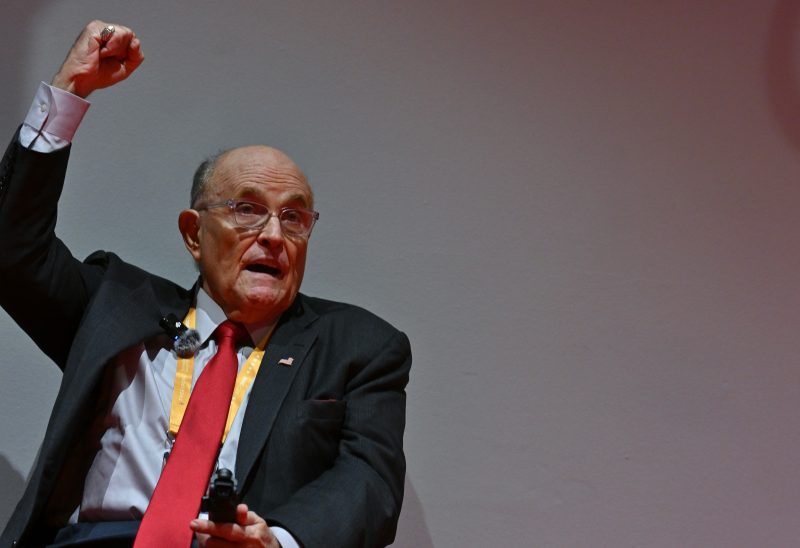
Legal Shockwave: Giuliani’s Assets Seized by Georgia Poll Workers Defamed by Judge
In recent legal proceedings, a judge ruled to grant control of former New York Mayor Rudy Giuliani’s assets to several Georgia poll workers whom he had defamed. This decision marks a pivotal moment in the ongoing legal battles surrounding the 2020 presidential election and Giuliani’s role in disputing its outcome.
The ruling stems from a defamation lawsuit filed by the poll workers against Giuliani in response to his repeated claims of election fraud in Georgia. Throughout Giuliani’s efforts to overturn the election results in favor of then-President Donald Trump, he accused the poll workers of manipulating the votes in favor of President Joe Biden. These baseless allegations not only tarnished the reputation of the poll workers but also subjected them to threats and harassment from supporters of the former administration.
The judge’s decision to award control of Giuliani’s assets to the poll workers serves as a form of restitution for the harm caused by his defamatory statements. By granting the plaintiffs authority over Giuliani’s assets, the court aims to hold him accountable for his actions and provide a measure of justice to those whose lives were adversely affected by his unfounded accusations.
Additionally, this ruling sends a powerful message about the consequences of spreading false information and engaging in malicious attacks on individuals who are simply carrying out their civic duties. It underscores the importance of upholding the integrity of electoral processes and safeguarding the rights of those involved in administering and overseeing elections.
Giuliani’s legal woes do not end with this ruling, as he faces numerous other defamation lawsuits and legal challenges related to his conduct following the 2020 election. The outcome of these cases will likely have far-reaching implications for Giuliani’s reputation and legal standing, as well as for the broader discourse surrounding election integrity and the responsibilities of public figures in shaping public opinion.
In conclusion, the judge’s decision to award control of Giuliani’s assets to the Georgia poll workers represents a significant development in the ongoing legal battle over the 2020 presidential election. It underscores the need to hold individuals accountable for spreading false information and defaming others, particularly in the context of sensitive and contentious political events. As this case unfolds, it will continue to shed light on the legal and ethical ramifications of challenging election results and the responsibilities that come with engaging in public discourse.
